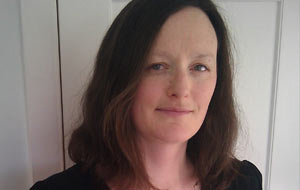
 Bronwyn Polaschek
Bronwyn Polaschek
PhD Graduate
Film, Media and Communication
Finding out Professor Hilary Radner was based at Otago was the clincher that brought Bronwyn Polaschek back to New Zealand and into a PhD programme.
She had completed her master's degree in Sociology at the London School of Economics, and had encountered Radner's work while writing an essay about representations of gender in contemporary film. And although Bronwyn was interested in further study, she also wanted to come home.
“I was amazed to learn that Hilary was based at Otago. It made the decision to come back much easier.” Above all, it was the opportunity for Bronwyn to delve into a collection of recent films about female artists – Frida Kahlo, Syvia Plath, Jane Austen and Virginia Woolf – that portrayed far more interesting and empowered women than most feminist criticisms of biopics would have you believe.
But examining this was no linear process, recalls Bronwyn. The refrain that continued to plague her was “What is the research question?”
“I worried about this a lot at one stage. I felt like I had the object of my study – the films – but no focal problem. I actually wrote an entire draft thesis, based on a different research question.”
The reality was, Bronwyn acknowledges, that it took time to become conversant enough with the literature to be able to articulate why it wasn't describing biopics adequately, and what she wanted to add to this discussion.
How does one still feel like they are moving forward in the midst of such uncertainty? “Keep records,” advises Bronwyn. “I kept a diary, noting the articles I had read and my thoughts about where they were leading. So when I asked myself, 'What have you been doing for the past three weeks?' I could show myself the answer. It was a nice affirmation that I was making progress.”
Bronwyn also gained confidence from her supervisor, “who would give me pep talks, assuring me that this process was normal”. And she had watched a friend go through a similar journey.
And as her thesis took shape, Bronwyn says it was “exciting, discovering what my contribution would be, and how my work fitted in to the existing literature”.
She took up opportunities to test the waters by attending conferences. While “putting my work out there” was slightly nervewracking, Bronwyn is convinced it was worthwhile. The feedback she gained was valuable, and she published a chapter in a book as a result of work she had prepared.
Bronwyn has not discounted the idea of a career as an academic, but for now is focusing on another all-encompassing and boundless project – parenthood. “I always wanted my PhD to be an end in itself, not just a step towards something else. I am very pleased to have done it – I learned a lot about something I was interested in, and it's something I will always have.”
Bronwyn's thesis has been formally recognised by the Division of Humanities as being of exceptional quality.